Overview
Police officers work in an environment that is often stressful and physically demanding which means our body’s natural response is to produce hormones such as adrenaline and cortisol. When this natural response becomes unregulated due to long term exposure to stress it can and sometimes does lead to anxiety.
Likewise, family members of police officers may also feel stressed when living with a loved one who is working long hours, rotating shifts and who may be experiencing trauma in the workplace. The added pressures of a partner being away from home in possibly dangerous working environments can impact on family via regularly feeling worried and covering extra home commitments which add further stress on partners and sometimes children.

Feelings of stress will accordingly come and go and may dissipate when the body moves into the rest and restore mode where the parasympathetic nervous system kicks in. Simply stopping, taking a few long slow breaths, meditating or talking about the stressful situation or thoughts to a trusted colleague, friend or family member may resolve the physical feelings of anxiety however the impact of everyday work life combined with family issues and life pressures may result in the need to seek professional help.
There are several avenues to seeking support, attending your GP at the first instance and discussing the issues around work life balance will assist your doctor to assess what type of support may be required. A referral via a mental health plan is an option to commence a series of counselling sessions preferably with a suitably trauma informed clinician who understands police culture.
Otherwise, contacting your state jurisdiction Employee Assistance Program can also assist with counselling or making an appointment to speak with your state chaplaincy service can be helpful.
To identify when anxiety may be an issue and it might be appropriate to seek further assistance the following list of symptoms and signs can be helpful to look out for:
- Difficulty concentrating
- Unnecessary worries or concerns that continue to pop into your mind
- Difficulty falling to sleep or staying asleep
- A general feeling of being unable to relax
- Keeping yourself busy all the time
- Avoiding places or people
- Feeling irritable, annoyed or restless
- Avoiding family and friends
- Feeling shaky or experiencing sweaty palms
- Frequent headaches, migraines or muscle aches
- Feeling your heart racing
- Shortness of breath
- Panic attacks
- Feelings of impending doom
Step-By-Step
When should I consider seeing my GP?

Anxiety starts to impact your daily work and home life
Feelings of panic become noticeable to the point where you can't relax or you feel you need to run away
You notice your heart pounding, shortness of breath and a general feeling of impending doom
What is the next steps when seeing my GP?

Making an appointment with your GP and explaining your symptoms will assist your Doctor to understand your feelings and what may be the underlying cause
Your GP will generally ask you to fill out a number of questionnaires to assist with assessing your condition
You may then be referred to an appropriate health clinician for further diagnosis, medication or counselling
In the meantime, it may help to reduce Caffeine, Alcohol and Non Prescription Medication
Content for anxiety or depression
 03 Apr 2022
03 Apr 2022
NSW Government Medicare mental health treatment plans
The first step to take when feeling overwhelmed or experiencing those niggling feelings of something isn’t quite right is to visit your GP. A general chat about your overall physical and mental health may indicate further investigation is warranted. This may include a series of tests to rule out physical issues and/or completing a mental health assessment. If your GP feels it would be helpful, you will be given a mental health plan and a referral to see a psychologist or psychiatrist.
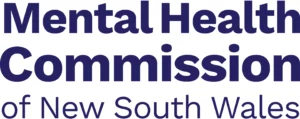 17 Nov 2021
17 Nov 2021
NSW Mental Health Commission
The Mental Health Commission provides Australia wide comprehensive services and resources for anyone seeking support and information about helplines, live chat, forums, GP’s, psychologists and psychiatrists, mental health plans, community support, treatment services, residential mental health services including alcohol and drugs, diversion support programs and information regarding peak bodies and advocacy services.
Leisa Doherty’s story assists partners of serving and former police who are struggling to understand the impact of policing on their partner and family.
 03 Apr 2022
03 Apr 2022
NSW Police Family Support Officers
Information and coordination of support services for family members of employees of the NSW police force who are injured or unwell. The Family Support Officers may assist with access to the employee assistance program, police chaplains, peer support, police association and police legacy programs, workers compensation information and referrals to appropriate support networks.
NSW Police income protection - TAL
Serving police in each state pay into individual state insurance, workers compensation, superannuation and income protection schemes. Assistance during times of injury, Illness, death, or career transition are available by contacting your appropriate state provider.
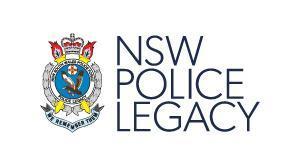 03 Apr 2022
03 Apr 2022
NSW Police Legacy
Police Legacy provide professional and compassionate support to families who have suffered a loss through the provision of benefits and services. Children who have lost a parent may benefit from camps, scholarships, trust funds and regular social engagement which is also extended to partners and parents. Each jurisdiction has independent services which may differ from state to state.
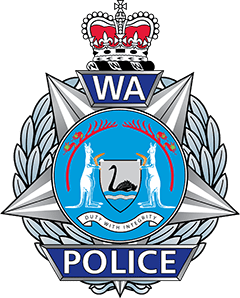 03 Apr 2022
03 Apr 2022
Police Family Support Western Australia
Inclusive and holistic mental health literacy for W.A police families with information and resources to support and understand when they or their loved one may need extra assistance including a free counselling service.
 22 Mar 2022
22 Mar 2022
Police Health
Private health insurance run by police for police including mental health, physical health, financial health, relationship and family health and career health
 03 Apr 2022
03 Apr 2022
Police Legacy Tasmania
Police Legacy provide professional and compassionate support to families who have suffered a loss through the provision of benefits and services. Children who have lost a parent may benefit from camps, scholarships, trust funds and regular social engagement which is also extended to partners and parents. Each jurisdiction has independent services which may differ from state to state.
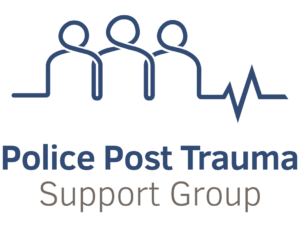 03 Apr 2022
03 Apr 2022
Police Post Trauma Support Group Inc (NSW)
Peer to Peer trauma support and referrals for NSW serving and former police and their families, monthly face to face meetings, crises intervention, chaplaincy, and spouse support services via an independent non for profit charity. Financial support is also available for necessitous circumstances and to attend mental health programs for those police and families without insurance cover.
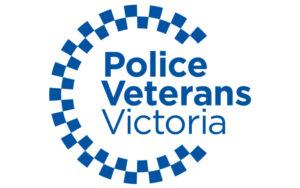 22 Jul 2022
22 Jul 2022
Police Veterans Victoria
Police Veterans Victoria is a dedicated service focused on improving mental health amongst police veterans and their families via peer to peer support.
 17 Nov 2021
17 Nov 2021
Police Wife Chronicles
Police Wife Chronicles based in NSW reaches out to female partners of police via regular blogs and information about living with a loved one who works in policing.
 22 Jan 2026
22 Jan 2026
Pre-Emptive Healthcare
Pre-Emptive Healthcare comprises a multidisciplinary team of Clinical Psychologists, Psychiatrists, Dietitian's, and Allied Health Professionals offering tailored confidential mental health services. Our team provides evidence-based, trauma-informed mental health support for individuals, couples, and families. Conveniently based in Melbourne’s inner-east, we deliver appointments both face-to-face and/or via secure telehealth platforms.
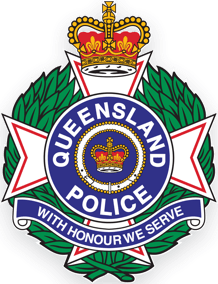 03 Apr 2022
03 Apr 2022
Queensland Police
Each individual state police jurisdictions will have mental health services for serving police which should include an Employee Assistance Program (EAP) along with other specific services. This may include EAP for transitioning police, former police up to 12 months and services for families. Career Transition services may also be included in some jurisdictions as moving into a new career after serving in the police force impacts mental health outcomes.
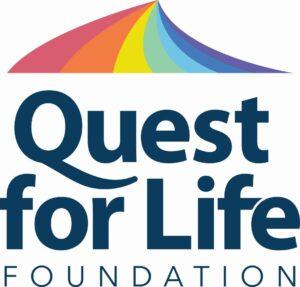 22 Sep 2021
22 Sep 2021
Quest for Life Foundation
Located at Bundanoon in the Southern Highlands of NSW, the Quest for Life Centre conducts monthly 5 day residential moving beyond trauma programs as an alternative for police living with trauma to hospital inpatient care. Programs provide educational person-centered education via a holistic approach based on the neuroscience of the brain and the latest evidenced based holistic health and healing modalities. An immersive 4 week Healing Trauma program is due to commence in late 2022. Programs such as the Healing your Life, living with cancer, loss after the suicide of a loved one, living with a brain injury or aging related illness are suitable for family members. Outreach programs are also conducted throughout NSW.
 11 Aug 2020
11 Aug 2020
R U OK?
RUOK provides the resources and people to assist our community to connect with one another by learning how to support people around us who may be struggling with mental health issues and thoughts of suicide. Resources are available both in the physical and digital format along with program ambassadors who are often the voice of lived experience, events, and ongoing research.
 03 Apr 2022
03 Apr 2022
Reachout Australia
An online mental health service for young people and parents providing peer to peer support, pathways to professional help, resources and forums to assist teenagers and under 25’s to stay safe. For parents services include digital information and resources on parenting teenagers, a confidential supportive online forum to discuss issues, coaching with a parental expert, building confidence and skills.
Relationships Australia
Relationships Australia provide a number of national services Australia wide to families, individuals and communities requiring support with relationships which may include, counselling, family support, domestic violence where they require assistance with safety and trauma, services for children and young people as well as services for older Australians looking for assistance with health, safety and wellbeing.

 Exit
Exit

